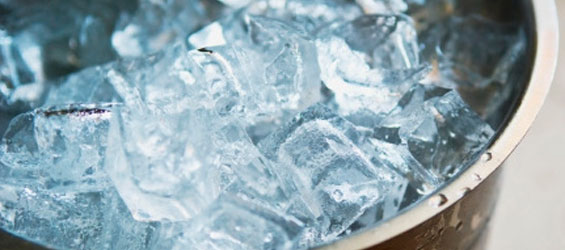
Watching videos friends, family, colleagues and celebrities douse themselves with buckets of ice water is certainly entertaining, and the “donate or dunk” nomination aspect of the Ice Bucket Challenge is one component that has provided so much momentum. I’ll admit that I enjoyed watching my brother’s low-fi video on my Facebook Timeline the other day as he tried to maintain complete composure with ice cubes down his shorts – and then so lovingly nominated his big sister and her wife.
But was this campaign truly thought through? Each participant is supposed to choose to either donate $100 or avoid the monetary contribution by dumping a bucket of ice water over their head. Here’s the rub: the challenge became more about videos on Facebook and wasting clean water than it did about the ALS Association or the people living with this terrible disease. Luckily, many people chose to dunk AND donate – which says a lot about our generosity – and the campaign raised awareness and a tremendous amount of funding for care services, research and advocacy.
The success thus far? As of the date of this post, the ALS Association reports that Ice Bucket Challenge donations have reached $22.9 million, compared to $1.9 million during the same time period last year (July 29 to August 19).
So, while the Ice Bucket Challenge showcases the power of social media for fundraising and has certainly proven its success, we can’t help but wonder how children and adults without access to clean drinking water feel about this challenge.
And for those like Forbes’ Matthew Harper, who wrote Think The ALS Ice Bucket Challenge Is Stupid? You’re Wrong, we’re not contrarians. We don’t think this challenge is stupid at all. In fact, it’s brilliant. However, we don’t believe that anyone considered the importance of one of our most precious natural resources.
Will Oremus, senior technology writer at Slate finds the ice bucket an unnecessary component of giving. His contention is that we should all take the “No Ice Bucket” Challenge: Stop dumping ice on your head. Just give money. We agree, Will.
It’s hard to shake the feeling that, for most of the people posting ice bucket videos of themselves on Facebook, Vine, and Instagram, the charity part remains a postscript. Remember, the way the challenge is set up, the ice-drenching is the alternative to contributing actual money. Some of the people issuing the challenges have tweaked the rules by asking people to contribute $10 even if they do soak themselves. Even so, a lot of the participants are probably spending more money on bagged ice than on ALS research.
As for ‘raising awareness’, few of the videos I’ve seen contain any substantive information about the disease, why the money is needed, or how it will be used. More than anything else, the ice bucket videos feel like an exercise in raising awareness of one’s own zaniness, altruism, and/or attractiveness in a wet T-shirt.
That’s why I’m proposing what is sure to be an unpopular alternative to the #icebucketchallenge. It’s called the “No Ice Bucket Challenge”, and it works like this:
- Do not fetch a bucket, fill it with ice, or dump it on your head.
- Do not film yourself or post anything on social media.
- Just donate the damn money, whether to the ALS Association or to some other charity of your choice. And if it’s an organization you really believe in, feel free to politely encourage your friends and family to do the same.
With more than 40% of our clients in the non-profit sector, helping those in need and finding solutions is part of our ethos at Liqui-Site. Here are a few thoughts of our own on the “No Ice Bucket” Challenge:
- Engage in Collective Social Responsibility: Make it a habit to buy from companies that donate a portion of every purchase to a charitable organization
- Give as gifts: Donations to a favorite charity make the best birthday or holiday presents.
- Or perhaps some of the money raised for ALS could be shared with The Water Project, for example, which provides sustainable water projects to communities in sub-Saharan Africa who suffer needlessly from a lack of access to clean water and proper sanitation. You can even start your own fundraising campaign.
Author’s note: No ice cubes were harmed in the writing of this blog post.
